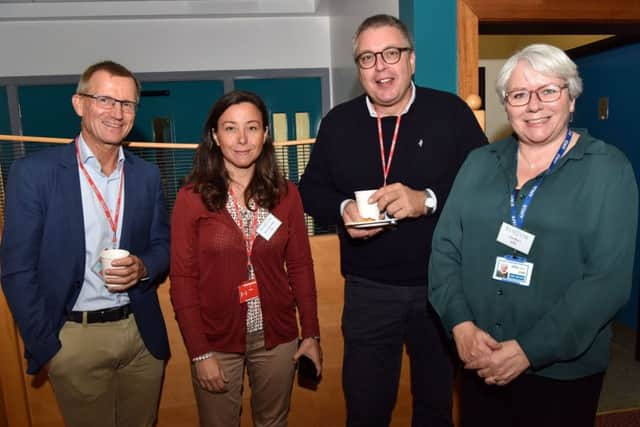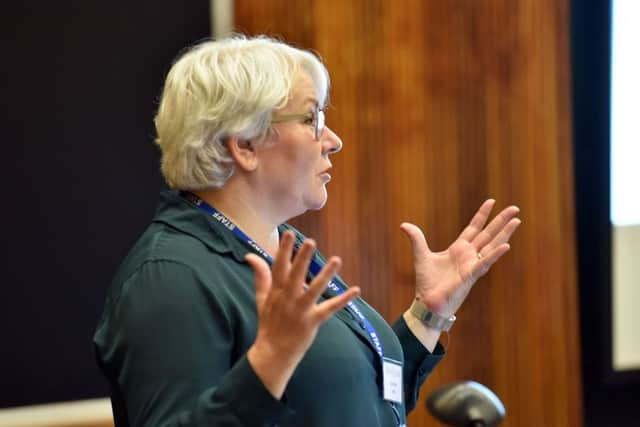Next-generation variety testing for improved cropping on farmland


The InnoVar project will develop new innovations in plant variety testing and has received almost €8M of funding.
The project will be completed over the coming 4½ years and represents a large EU consortium of 21 partners from 10 countries. The project is led by AFBI and other UK partners include the Department of Agriculture, Environment, and Rural Affairs, the Animal and Plant Health Agency, and ADAS. The consortium has a strong partnership across Ireland with University College Dublin being a co-lead on the project and the Department of Agriculture, Food and the Marine, and Origin as partners. This is the first time the team at AFBI Crossnacreevy Plant Testing Station have lead such a major, high profile European project and it represents a significant achievement for AFBI both locally and internationally.
Advertisement
Hide AdAdvertisement
Hide AdInnoVar will benefit local stakeholders through drawing together expertise and knowledge from across crop science, bioinformatics, soil science, meteorology, and computer science to develop and deliver methods and tools to achieve greater efficiency in variety testing processes and in the use of resources on-farm. Ultimately this will enable farmers across Northern Ireland, Ireland, the UK and the EU to maximise the potential of their land, in terms of both the yield and environmental sustainability (including adaptation to climate change and environmental resilience). The project aims to identify varieties that can maintain performance with lower agro-chemical inputs and under more extreme climatic conditions. Workshops and meetings between variety testing specialists, stakeholders, and invited experts from across the EU, will ensure appropriate and targeted focus of the work for maximum impact and transfer of research outcomes to growers, breeders, end-users and other stakeholders.


InnoVar will use cutting-edge technologies to develop Next Generation Variety Testing including phenotyping, phenomics, genomics, and machine learning.
InnoVar will develop a database of historic phenotyping data as the foundation which will be expanded and updated to include the capture of phenotyping data from standardised variety trials procedures ongoing across the EU. The database will also include phenomic data collected from selected trials using drone-based technologies to systemically assess the development and resilience of varieties. Environmental data will also be collected for field sites including soil and weather information.
With regards to the application of genomics, existing and de novo genetic (Single Nucleotide Polymorphism, SNP) data for selected varieties will be added to the InnoVar database. These data, combined with the phenotypic and phenomic data, will be used in genome-wide association studies to identify genomic loci and markers associated with variety traits of interest. This will enable a better understanding of the genetic basis of the plant phenotype leading to greater efficiency of plant variety testing with the potential to enhance the breeding of optimised varieties reducing the need for plant protection products.
Advertisement
Hide AdAdvertisement
Hide AdMachine learning and deep learning will be applied to the created standardized environmental, phenotypic, phenomic, and genomic data sets to determine the potential of more refined models and algorithms to contribute to variety testing.


InnoVar initially focusses on wheat and will then apply the same approach to provide road-maps for other crop groups with more detailed work on grass, maize, and legumes.
One of InnoVar’s key outputs will be an App to provide a decision support system to empower growers to select crops that are best suited for their agro-climatic region, end-use, and growing scenarios. The App will develop the concept of High Performance Low Risk (HPLR) variety selection.
These new approaches – combined with conventional plant evaluation techniques - will deliver Next Generation Variety Testing (NGVT). The ultimate aim is to deliver harmonised variety testing across Europe so that average yields can approach potential yields through the use of ‘fit-for-purpose’ regional varieties.
Advertisement
Hide AdAdvertisement
Hide AdAs project coordinators AFBI is responsible for successful delivery of the project and will ensure that Northern Ireland stakeholders can avail of the many opportunities and advances this project will bring.